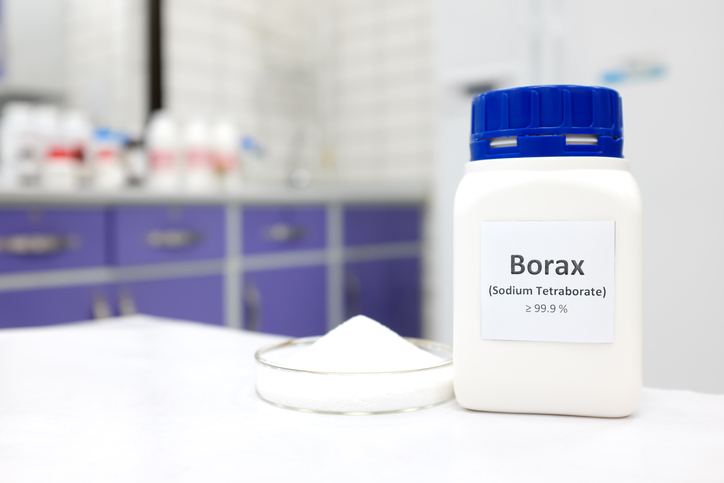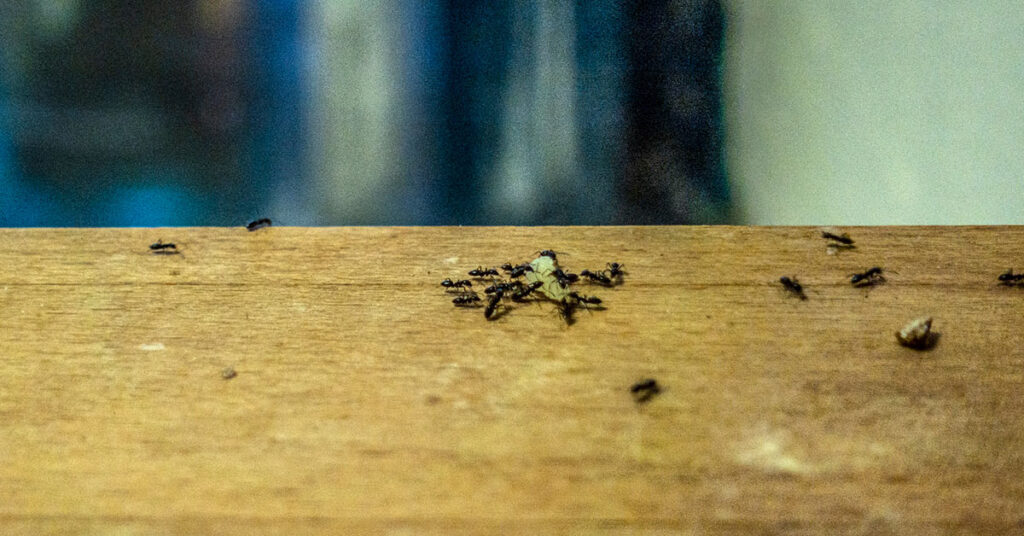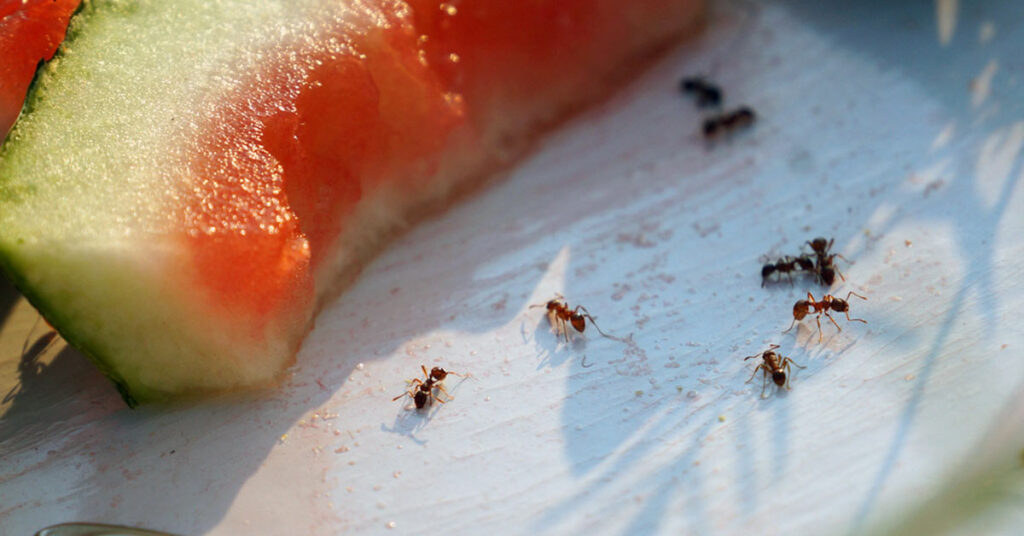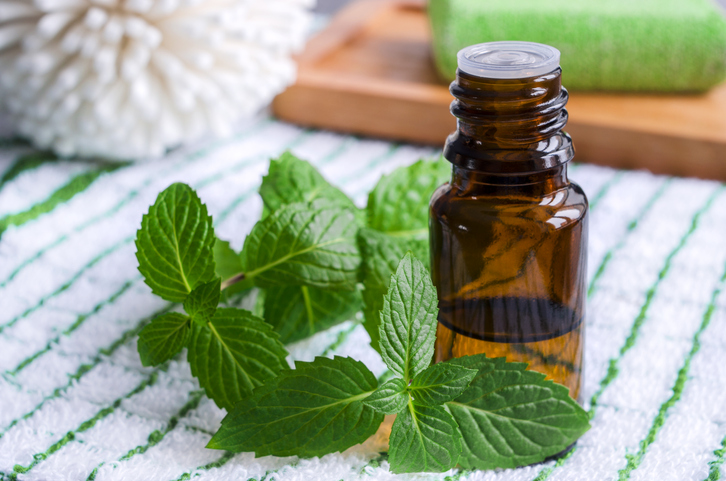When faced with an ant infestation, finding an effective solution to eliminate these pests is crucial. Borax has gained popularity as a method for ant control due to its ability to kill ants and disrupt their colonies. This natural mineral compound has been used for decades and has proven to be an effective solution for homeowners seeking a DIY approach to ant extermination. Understanding how Borax works and its effectiveness in killing ants is essential in determining whether it is the right choice for addressing your ant problem.

Table of Contents
Understanding Borax
Borax, also known as sodium borate, is a naturally occurring mineral composed of sodium, boron, oxygen, and water. It is a white, crystalline powder that is commonly used for various purposes, including cleaning, laundry, and pest control. Borax is mined from mineral deposits and has been used for centuries due to its versatile properties.
Discussion On How Borax Works To Kill Ants
When it comes to ant control, borax acts as an effective weapon against these pesky insects. The mechanism of how borax works to kill ants involves its ability to disrupt their digestive system and damage their exoskeleton.
Borax is a slow-acting poison that is toxic to ants. It contains boric acid, which is highly toxic to insects but relatively safe for humans and pets when used properly. When ants come into contact with borax, they are attracted to its sweet taste and scent. The ants then consume the borax, mistaking it for food, and carry it back to their nests.
Once ingested, borax interferes with the ant’s ability to digest food by inhibiting enzyme activity in the digestive system. This disruption leads to starvation and the eventual death of the ants. Additionally, borax has abrasive properties that can cause damage to the ant’s exoskeleton, leading to dehydration and further contributing to its demise.
The slow-acting nature of borax is advantageous for ant control. As the ants consume the borax and carry it back to their nests, they inadvertently spread it to other members of the colony, including the queen. This indirect transmission of borax ensures that the entire ant colony is targeted, leading to long-term eradication.
It’s important to note that while borax is effective against ants, it requires patience and persistence. Ant colonies can be large and complex, and complete elimination may take time. Regular application of borax baits and consistent monitoring are key to achieving successful ant control.
The Science Behind Borax And Ants
The science behind borax and its effectiveness against ants lies in its ability to disrupt the ants’ digestive system, leading to dehydration and eventual death. Borax acts as a slow-acting bait, allowing worker ants to carry it back to the colony, where it is shared with others, including the queen. This disrupts the reproductive cycle of the colony, ultimately leading to its collapse. Scientific studies support the efficacy of borax as an ant control method, making it a popular choice for homeowners seeking to eliminate ant infestations.
Explanation Of How Borax Affects The Ant Life Cycle
Borax disrupts the ant life cycle by targeting multiple stages of ant development. When worker ants consume borax, they unknowingly carry it back to the colony, where it is shared with other ants, including the queen. The queen, being the reproductive powerhouse of the colony, plays a crucial role in its survival. The ingestion of borax by the queen inhibits her ability to produce viable offspring, thereby hampering the growth and sustainability of the ant population.
Identification Of What Types Of Ants Borax Can Effectively Exterminate
Borax can be effective in exterminating various types of ants, including common household ants such as Argentine ants, odorous house ants, pavement ants, and Pharaoh ants. These ants are attracted to the sugar-based borax baits and readily consume them, resulting in colony-wide transmission of the poison. It’s important to note that while borax can be effective against many ant species, certain ant species may have different feeding preferences and may not be as attracted to borax baits.
Discussion On The Effectiveness Of Borax In Eliminating Ant Colonies
The effectiveness of borax in eliminating ant colonies is well-documented. Borax acts as a slow-acting poison, allowing the worker ants to bring the bait back to the colony, ultimately affecting the entire ant population, including the queen. As the queen ingests borax, her ability to reproduce is disrupted, leading to a decline in the number of new ants being produced. Over time, the population dwindles, resulting in the eventual collapse of the colony.
While the effectiveness of borax in eliminating ant colonies is proven, it’s important to note that the success of the treatment depends on factors such as proper bait placement, consistency in application, and the size and persistence of the ant colony.
The DIY Approach: Making A Borax Ant Killer At Home
Using DIY approaches allows you to create an effective and affordable solution to eliminate ants using commonly available ingredients. By following the step-by-step guide and using Borax, sugar or sweetener, and water, you can create your own ant killer solution that can be used both indoors and outdoors. This DIY approach empowers you to take control of ant infestations and maintain a pest-free environment.
Step-By-Step Guide On How To Make A Borax Ant Killer At Home
By combining Borax, sugar or sweetener, and water, you can make a potent solution that targets and eradicates ants. The detailed instructions provided will guide you through the process, ensuring the correct measurements and proper mixing. This DIY approach offers an affordable and effective alternative to commercial ant killers, allowing you to tackle ant infestations on your own terms. Whether you are dealing with indoor or outdoor ant problems, this homemade Borax ant killer can be a valuable tool in your pest control arsenal.
Detailed Instructions On Using Borax For Ant Control Both Indoors And Outdoors
For indoor use, start by identifying the areas where ants are most active, such as entry points, baseboards, or near food sources. Sprinkle a thin line of powdered Borax along ant trails or near their entry points, as the ants will come into contact with it and carry it back to their colony. It’s important to repeat this process regularly, especially after cleaning or if you notice a resurgence in ant activity.
For outdoor use, locate ant nests or entry points outside your home, such as cracks in the foundation, gaps in windows or doors, or ant mounds. Create a mixture by combining powdered Borax with an equal amount of sugar or sweetener to attract the ants. Sprinkle this mixture near the ant nests or along their trails, making sure it is not easily washed away by rain or irrigation. Reapply the Borax mixture as needed, particularly after heavy rainfall or if the ant activity persists.
Comparing Borax With Other Ant Control Methods
When it comes to ant control, there are various methods available in the market. One popular option is Borax, a versatile and cost-effective solution. However, it’s essential to compare Borax with other ant control methods to determine the most suitable approach for your needs. This comparison involves assessing the effectiveness, cost, and professional use of Borax compared to other commercial ant killers. By understanding the pros and cons of different ant control methods, you can make an informed decision to combat ant infestations effectively.
Comparison Of Borax To Other Ant Killers On The Market
When comparing Borax to other ant killers on the market, such as Terro Ant Killer, Raid Ant Baits, and Ortho Home Defense Ant Killer, it’s important to consider their effectiveness, safety, and ease of use. While these commercial ant killers may offer quick results, they often contain chemicals that can be harmful to the environment, pets, and humans. On the other hand, Borax, like the 20 Mule Team Borax brand, provides an effective and relatively safe solution for ant control. It works by disrupting the ant’s digestive system and dehydrating them, ultimately leading to the eradication of the colony.
Analysis Of The Cost Differences Between Borax And Commercial Ant Killers
When comparing the cost differences between Borax and commercial ant killers, it’s worth noting that Borax, such as the 20 Mule Team Borax brand, is a more affordable option. A box of Borax, typically weighing 4 pounds, can cost around $5. In contrast, commercial ant killers like Terro Ant Killer or Raid Ant Baits can range from $8 to $15 for a similar quantity. While the initial price may vary, it’s essential to consider the effectiveness and long-term value of the product. Borax offers a cost-effective solution that can effectively eliminate ant infestations when used correctly.
Exploration Of Professional Exterminators’ Use Of Borax For Ant Control
While professional exterminators primarily use a range of methods and products for ant control, some do incorporate Borax as part of their arsenal. The use of Borax by professional exterminators demonstrates its efficacy in addressing ant infestations. However, it’s important to note that professional exterminators may utilize additional strategies and products tailored to specific ant species and infestation levels. Consulting with a professional can provide valuable insights and guidance on the most effective treatment options, including the potential use of Borax.
-
Best Overall
 Save $50 on your first recurring service today with code GET50
Save $50 on your first recurring service today with code GET50 -
Best for Termites
 Save $50 on pest control services with code SAVE50 at checkout
Save $50 on pest control services with code SAVE50 at checkout -
Best for Bed Bugs
 Get a free estimate on pest control services for your home
Get a free estimate on pest control services for your home -
Best for Wildlife Removal
 Call For A Fast & FREE Phone Estimate Today
Call For A Fast & FREE Phone Estimate Today -
Best for Natural Treatment
 Get $100 Off Your Termite Treatment Service
Get $100 Off Your Termite Treatment Service
Ant Prevention And Borax
While Borax is primarily known for its effectiveness in eliminating existing ant colonies, it can also serve as a preventive measure. By creating a barrier with powdered Borax in areas prone to ant activity, such as entry points, windowsills, and cracks, you can deter ants from entering your home. The abrasive nature of Borax particles can interfere with ants’ sensory abilities and disrupt their scent trails, making your space less attractive to them.
Exploration Of The Potential For Borax To Cause Ants To Multiply Instead Of Killing Them
There is a common concern that Borax might cause ant colonies to multiply instead of eradicating them. This notion arises from the observation that worker ants may carry Borax back to the colony, potentially feeding it to the queen, and inadvertently triggering an increased reproductive response. However, this phenomenon is relatively rare and typically occurs when Borax is not used correctly or in high concentrations. When properly applied, Borax acts as a slow-acting poison that allows the worker ants to carry it back to the colony, effectively eliminating the entire population, including the queen.
Safety And Environmental Impact Of Borax
Before using Borax for ant control, it is important to consider its safety. Borax is generally considered safe for use in controlling ants when used according to the instructions. However, it is crucial to handle Borax with care, following safety precautions and keeping it out of reach of children and pets. Direct contact with Borax powder may cause skin irritation or eye irritation, so wearing gloves and avoiding inhalation or ingestion is recommended.
Discussion On The Dangers To Pets From Borax Ant Baits And Symptoms If A Pet Ingests Borax Ant Bait
While Borax is relatively safe for humans when used properly, it can pose risks to pets if ingested in large amounts. Pets, especially cats and dogs, may be attracted to the sweet scent of Borax ant baits and attempt to eat them. If a pet ingests Borax, it can lead to various symptoms such as gastrointestinal distress, vomiting, diarrhea, excessive thirst, lethargy, or in severe cases, more serious health issues. It is important to consult a veterinarian immediately if you suspect your pet has ingested Borax.
Assessment Of Borax’s Environmental Impact
Borax is considered to have a low environmental impact compared to many chemical pesticides. When used as directed, Borax is not highly toxic to non-target organisms. However, it is important to minimize its impact on the environment by avoiding excessive application or runoff into water bodies. Borax is biodegradable and breaks down over time, reducing its persistence in the environment.
Long-Term Effects Of Using Borax In Gardens Or Lawns For Ant Control
Using Borax in gardens or lawns for ant control can have long-term effects on the ecosystem. Excessive or prolonged use of Borax can disrupt soil fertility and microbial activity. It is important to apply Borax sparingly and target specific problem areas rather than applying it uniformly. Additionally, alternative methods and sustainable gardening practices should be considered to minimize the environmental impact. Monitoring ant activity, replenishing the soil with organic matter, and adopting integrated pest management approaches can help maintain a healthy ecosystem while effectively managing ants. Striking a balance between ant control and environmental stewardship is crucial when using Borax in outdoor settings.
Legal Status Of Using Borax For Pest Control In Various Countries
The legal status of using Borax for pest control can vary significantly across countries and regions. While Borax is generally available and commonly used for ant control in many areas, it is essential to understand and comply with the specific regulations and guidelines in your country. Some countries may impose restrictions or regulations on the use of Borax for pest control, particularly when it involves commercial or professional applications. in the United States, the Environmental Protection Agency (EPA) classifies Borax as a pesticide and regulates its use accordingly. It is crucial to research and familiarize yourself with the local laws and regulations governing the use of Borax to ensure you are using it in accordance with the prescribed guidelines. By adhering to legal requirements, you can responsibly use Borax for ant control while avoiding any potential legal issues.
Borax: Storage And Disposal
Proper storage and disposal of leftover Borax is essential to ensure safety and minimize environmental impact. To store Borax safely, keep it in its original packaging or a tightly sealed container in a cool, dry place away from heat and sunlight. Ensure it is out of reach of children and pets. When it comes to disposal, it is important to check local regulations. Consider reusing or sharing leftover Borax if possible. If disposal is necessary, do not pour it down the drain or throw it in regular trash. Instead, consult local waste management authorities or recycling centers for proper disposal methods, which may include designated hazardous waste collection sites. By following these guidelines, you can effectively manage the storage and disposal of Borax.
Alternatives To Borax For Ant Control
There are several alternatives to Borax for effectively managing ant infestations. Some popular options include diatomaceous earth, essential oils (such as peppermint, citrus, tea tree, and cinnamon), vinegar, lemon juice, cucumber peels, and food-grade diatomaceous earth. Diatomaceous earth acts as a desiccant, dehydrating ants and causing them to die. Essential oils, vinegar, and lemon juice disrupt ants’ trails and serve as natural repellents. Cucumber peels and food-grade diatomaceous earth also deter ants from entering specific areas. It’s important to remember that the effectiveness of these alternatives may vary depending on the ant species and infestation severity. Proper identification of the ants and assessment of each alternative method is crucial for successful ant control.
Conclusion
Borax has been proven to be an effective and widely used method for killing ants. Its ability to disrupt the ant’s digestive system and dehydrate its exoskeleton leads to the eventual demise of the colony. Numerous scientific studies and practical applications support the use of Borax for ant control. However, it is important to follow proper safety guidelines, use it responsibly, and be mindful of potential environmental impacts. When used correctly, Borax can be a valuable tool in eliminating ant infestations and maintaining a pest-free environment.




